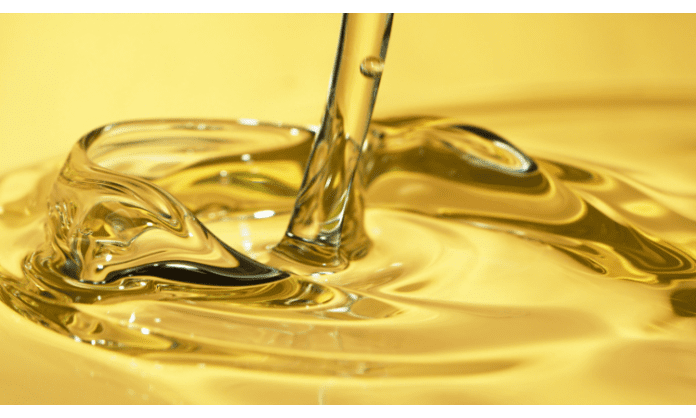
When it comes to cooking, there are two ways you can get oil. One is by cold pressing, and the other is through heat extraction. Both methods extract oils from plants and produce beautiful oils, but they are different in many ways and each has its own advantages. This guide will help you understand how these processes work, so that you can choose which one is right for your needs.
What is cold pressed oil?
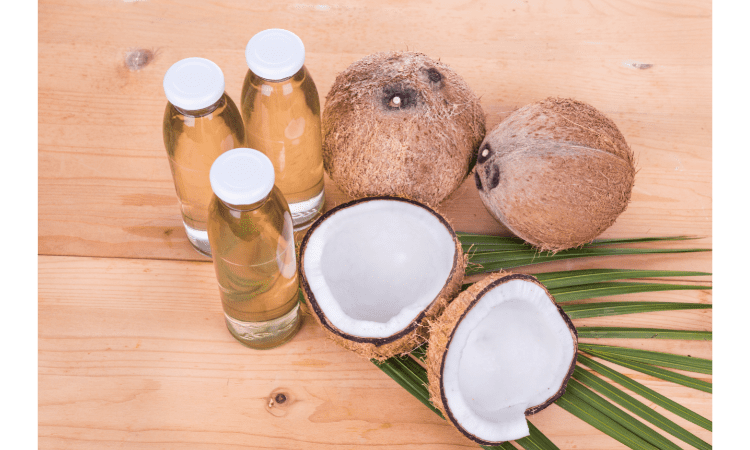
Cold-pressed oil is extracted by pressing the seeds or nuts without heating them. This method preserves the delicate nutritional value of the oil, making it unrefined and much more nutritious than heat-extracted oils.
This type of oil are usually more expensive than other types because they require more labor and equipment to extract from the seeds and nuts. Also, because of their high quality, these oils have a longer shelf life than many other types of oils, so you can store them for longer periods without losing their nutritional value or flavor.
What is heat extracted oil?

Heat-extracted oils, also known as “expeller extracted” or “hot-pressed” oils, are extracted by using a chemical solvent. The most common solvent used to extract heat-extracted oils is hexane and/or other petroleum distillates. These solvents are added in small quantities to the oil before extraction, which then separates the oil from its source material (such as the seeds of a fruit or nut).
The benefit of using heat-extraction over cold pressing is that it allows for a more complete extraction process. Heat can also be used during this process because it helps melt away any waxes and lipids within the oil’s structure which may prevent maximum extraction efficiency if left alone.
Difference between both process
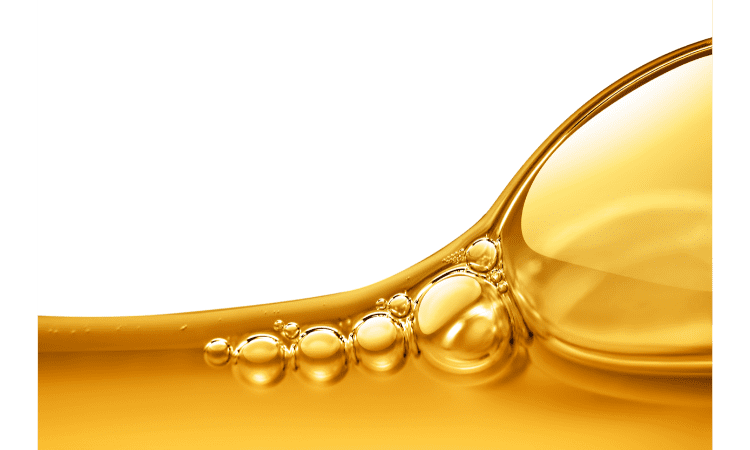
Cold-pressed oil is extracted from the seeds of a fruit or vegetable, while heat-extracted oil is made by heating and crushing the fruit or vegetable pulp. Cold-pressed oils have a shorter shelf life than heat-extracted oils, and they are more expensive to produce. The main difference between these two types of cooking oils is their extraction process.
Manufacturing process
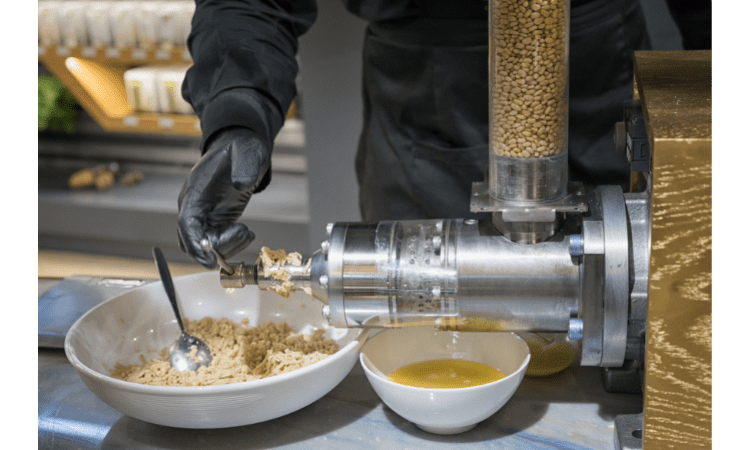
Cold-pressed oil is extracted by crushing the seeds or nuts. The crushed seeds or nuts are then subjected to a variety of pressures, from mild (1 bar) up to very high pressures (10 bars). At these pressures, water and oil are separated from each other.
Heat-extracted oils are typically extracted using a heat press or an expeller press. In this process, followed for both cold-pressed olive oil and other vegetable oils like soybean and sunflower oil, the natural fats in the plant matter are heated at high temperatures until they separate from the rest of what makes up the plant material—just like how you might use a blender on vegetables that have been finely minced with some water so as to create a sauce. Once this separation has occurred, you’re left with pure liquid fat that can be processed into different products such as salad dressings and mayonnaise.
Nutritional value

In terms of nutritional value, cold-pressed oil has a lot more to offer. It contains higher amounts of vitamins and minerals, as well as carotenoids (a type of antioxidant) and polyphenols (also known as antioxidants).
Plus, since heat extraction destroys many of these substances, it’s also possible that you’ll get more out of your food if you choose cold-pressed oils instead.
If you’re looking for the most nutritious option available when buying cooking oil or salad dressing, then look for cold-pressed options.
Shelf-life

The shelf-life of an oil is directly related to the type of processing it underwent. Cold-pressed oils are more stable and have a longer shelf life than heat extracted oils.
Cold pressed oils are not exposed to heat, oxygen or light which can cause oxidation and chemical reactions that accelerate deterioration. Heat extracted oils will also oxidize and deteriorate faster than cold pressed oils because they’ve been exposed to heat during processing and then stored at room temperature after bottling.
Cooking method

- Cold-pressed oil is best for cooking. Heat can destroy some of the nutrients found in cold-pressed coconut oil, while leaving heat-extracted oils virtually unchanged. If you’re frying food with either kind of oil, though, it’s best to go with a vegetable or refined olive oil that has been processed either by heating or refining; these methods are less likely to damage the nutrients from your food than cold pressing or heat extraction would be.
- Heat extracted oils are better for salad dressings and sauces because they contain more flavor and viscosity than their cold pressed counterparts do (though some cold pressed oils do have great flavor). They also tend to have a higher smoking point than other types of cooking oils (upwards of 300 degrees Fahrenheit), which makes them ideal for sautéing at high temperatures without burning anything down around you.
Cold pressed oil is better
Cold-pressed oils are better than heat extracted oils. Heat extracted oils are processed with high heat, such as olive oil. These processes are damaging to the nutritional value of the food, because they destroy many essential vitamins and minerals. Cold-pressed oil contains all of its original nutrients, which is why it is considered a healthier option over other types of cooking fat.
Boost Overall Health

Cold-pressed oils are healthier and more nutritious than heat-extracted oils.
- Cold-pressed oil is more versatile, stable and flavorful. The process of cold pressing retains the natural flavor of the food, while heat extraction diminishes it.
- Cold pressed oil is more nutritious and digestible because it has not been broken down by heat or chemical solvents. Heat extracted or refined oils can be damaged by processing methods that use high temperatures, which destroys many of their natural vitamins and minerals as well as beneficial enzymes and antioxidants.
Maintain Good Skin And Hair

You can use cold-pressed oil to nourish your skin and hair. It contains more nutrients than heat-extracted oils, so it’s better for your overall health as well. Cold pressed oils are also ideal for those who want to maintain a youthful glow on their face, as they minimize fine lines and wrinkles by rejuvenating the skin cells. You can apply cold pressed oils directly onto your face, or mix them with other carriers like coconut or olive oil before applying them lightly on your face.
Cold pressed oils are also great for massaging into dry scalp areas because they help lock in moisture while providing hydration to dry scalps. This prevents dryness from occurring while strengthening damaged hair follicles at the same time.
Improve Insulin Sensitivity

- Insulin sensitivity is the ability of your body to process glucose. It’s what makes you feel good after eating. It’s also related to how quickly your body can respond to a meal by converting carbohydrates into energy, which helps prevent blood sugar spikes and crashes that leave you a little cranky.
- Cold-pressed oils are rich in omega-3 fatty acids, which have been shown to improve insulin sensitivity by improving the way your body processes sugar and fats.
- Heat-extracted oils don’t contain these anti-inflammatory properties because they’ve been damaged during processing.
Decrease Bad Cholesterol In The Body
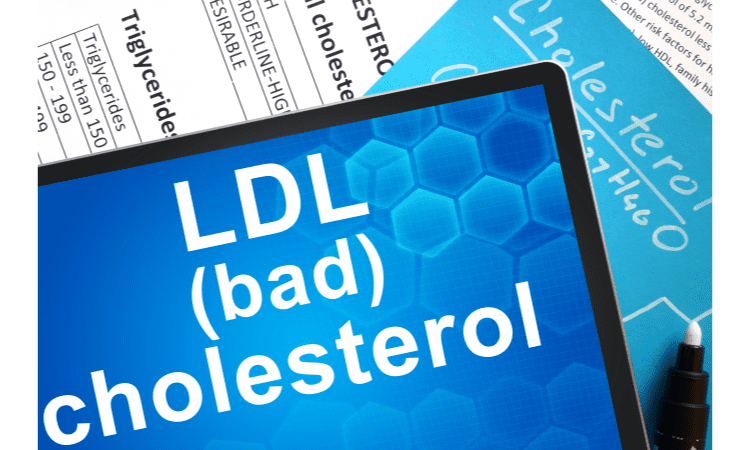
If you’re looking to improve your health and decrease bad cholesterol in the body, cold-pressed oil is the way to go. Heat-extracted oil is extremely processed and thus loses most of its nutrients. It also has a high concentration of polyunsaturated fats that are known to increase LDL (bad) cholesterol levels in your blood. In contrast, cold-pressed oils retain more of their natural nutrients and have a lower polyunsaturated fat content because they’re not exposed to high temperatures during extraction.
A study published in The American Journal of Clinical Nutrition showed that consuming cold-pressed olive oil every day for 12 weeks significantly lowered LDL cholesterol by 15%. That’s twice as effective as extra virgin olive oil.
Conclusion
In conclusion, the main difference between cold-pressed and heat-extracted oils is the way they are processed. Cold-pressed oils have a high nutrient value because they retain all their nutrients and enzymes that are easily digestible by our bodies. Heat extraction results in less nutritional value due to the loss of these components during processing. However, heat extraction is still a viable option for extracting oil from some types of plants, such as hemp or coconut.











